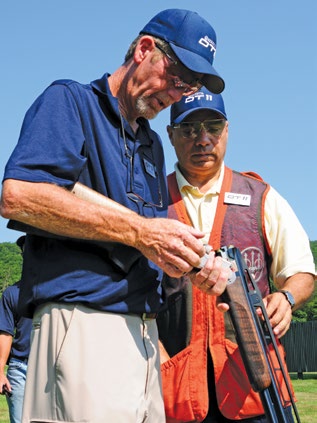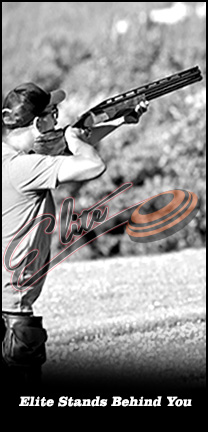Mental Training > Practice, Practice Practice
We all know if we don’t practice, we don’t improve. That’s the name of the game. But a lot of us don’t really practice as much as have fun shooting at “practice”, so improvement is slow. I’ve touched on this subject numerous times in this column probably to the point of a lot of you saying, “not another one”. But there is one important part of the process I have not addressed — the tendency of every person to procrastinate.
A number of years ago I wrote a column on comfort zones, how they affect our shooting and how to extend them to deal with match stress. Like every other aspect of training, you have to work at developing comfort zones, which means testing the edges and extending those boundaries until you have reached your goal, which in the case of practicing is learning to enjoy or at least want to practice. Procrastination is in everyone’s comfort zone. We have to learn to go beyond if we want to practice well.
Practice is usually hard and it is hardly fun, but it has significant rewards. In the beginning, it’s all about learning to shoot, but this quickly becomes all about how to shoot in a match and improve. Because of the changing goals, the scope of practice changes, but the need to practice never does, even at the highest levels.
Unless you are in a situation that demands you practice, most shooters are on their own when it comes to scheduling and carrying out a practice schedule. Most shooters probably don’t even have a schedule other than they make a decision to go to the range once a week or so and try to get there before a match in order to warm up. Nevermind setting practice goals, documenting the practice, analyzing the results and applying specific answers to problems that arise in matches. Just getting there can be a problem.
There are a number of studies showing a high percentage of experts lack a standard way of continuing their expertise. They don’t have a regular way of increasing their body of knowledge or developing skills. Yet, a significant number of them find a way to keep up and improve. The same studies show those experts who say they don’t have a way to improve actually do, but they are not aware of what they do. What they have is an intense attachment to their field of expertise and an almost obsessive desire to keep up.
If you look at the professional shooters, that’s exactly the way they are. It’s all about improvement and winning. Which makes sense if you have to make your living shooting or teaching shooting. Most of us don’t fall into that category, so if we want to make substantial improvement, we have to find a way to do the work. That means finding a way to practice.
There are many impediments to practice in real life. The first is time. We have to make time in our lives to do something others in our lives may see as frivolous. We, of course, know that is not true, but sometimes choices are inevitable. There are other times in which there are nonessential choices — choosing between watching that game on TV and practicing can be difficult, especially if you really want to watch the game. As I mentioned above, practice isn’t always fun, but if we don’t practice, we don’t improve.
The second issue is the natural tendency to do nothing. Some call this laziness, but I call it procrastination for the simple reason the term is a much less negative one. Because of the nature of most competitive shooters, a term such as laziness has a negative effect on reaching goals. If you think you are lazy, you conflate that with worthlessness and then decide it is not worth it to practice. If you know all of us have to overcome a procrastination hump to get things done, we plan for it and know we are able to do the work. It just takes a little effort in the beginning, and the rest will take care of itself.
Words have power.
Interestingly, we can use the first problem to help solve the second problem. No matter what our situation, we have a limited amount of time to practice. This is a good thing, since it forces us to schedule and plan ahead if we want to efficiently improve. It’s helpful if you have a regular schedule in life because it is less complex, but we should be able to find an hour or so in each week (more is better, but you take what you can get) to get to the range and find it on a regular basis. That regularity and an even spread of time is important because it forms self-imposed deadlines.
I have to meet a deadline for this column that comes near the end of each month. If I don’t meet the deadline, I don’t get paid — a simple but effective formula. That is a principle called loss aversion, something we are all wired to do. There is a lot of satisfaction in writing a good column, but there is even more reason to avoid missing out on the pay and incurring the wrath of our editor. (Johnny Cantu is a perfect gentleman, but in this context, I prefer to think of him as Attila the Hun.) This gives me a strong incentive to succeed in writing the article. Deadlines work.
Evenly spread deadlines work better because you have time to consolidate your gains and to rest. Lumping all the practice you need just before a match is a recipe for disaster, as none of what you do will be available to you in the match. Most of us find once we get into the habit of training regularly, we have a lot of satisfaction from reaching our goals and avoiding the negative feelings that occur if we miss practice. Since this is an election season, I suggest every time you miss practice, you contribute five dollars to the candidate you least like. That’s real loss aversion. The other issue has to do with getting over that procrastination hump. While knowing what to do in practice takes some energy and developing a plan takes a little time, after a while most of us know what we have to do. It’s not rocket science. In fact, once we are into obsessing a little about our shooting, we will literally wake up with a plan, as that is the way our brains work. It’s getting out there and executing the plan that is the hard part. We need a way to continue improvement.
Angela Duckworth, Ph.D., calls this trait “grit” or “the tendency to sustain interest in or effort toward very long term goals.” She has written a book of the same title that is well worth reading. In the book, she outlines several steps in how we make decisions to deal with our impulses — in this case not to practice — even when we know the temptations are detrimental to our long term goals. The stages she outlines in her papers have to do with how we set ourselves up to make the decision. If we have a weekly practice on, say, Wednesdays, and that is the same time as our favorite TV show, we are setting ourselves up for failure, as it is easier to stay on the couch than to move. The idea is to head temptation off at the pass and make sure as we approach the time to practice, we are all set up to go.
In this case, it means that we have all of our equipment ready (including ammunition) and it is a one-step process to pick up and go. We need to think about what we are going to do and do this well before practice, so we can get out on the field and start without having to ponder over what to do next. When we do get to practice, we have to have very specific goals in mind. That way we will also have the reward of reaching those goals (positive reinforcement), and we will make sure we have to accomplish those goals (loss aversion.)
Setting all of this up is not easy in the beginning. It takes a lot of work and the procrastination hump is pretty big. As you continue to work on this skill, it gets easier to accomplish. There are some caveats: if you have a sudden unplanned break in the process that lasts through several cycles, you can lose what you have gained, although you don’t have to go back to the beginning to get it working again. Second, if things don’t go well for a while, that can be discouraging. Remember the process of improvement is often trial and error (this is where a coach helps), and you have the skills to rectify this situation. You just have to recognize it exists and change, which means you have to continue to practice on your schedule.
The hard part about practice is showing up on a regular basis. Like any other skill you nurture, you have to practice it and perfect it if you want it to work. It takes grit and determination to set up and follow a practice schedule, but the effort is worth it. Once you have learned the skill of following your goals, you will be able to continue to improve and reach your goals. SS
Dr. Keyes has written over 220 articles on mental training for Shotgun Sports and is author of the book Mental Training For The Shotgun Sports available on page 60. He is a former physician for the U.S. Shooting Team, retired Colonel from the Army Reserve and a veteran of Viet Nam and Desert Storm. A Tennessee state pistol champion and coach of several national championship teams, he is retired from his practice in Fond du Lac, Wisconsin. You can e-mail him at michaelkeyes12@gmail.com.












